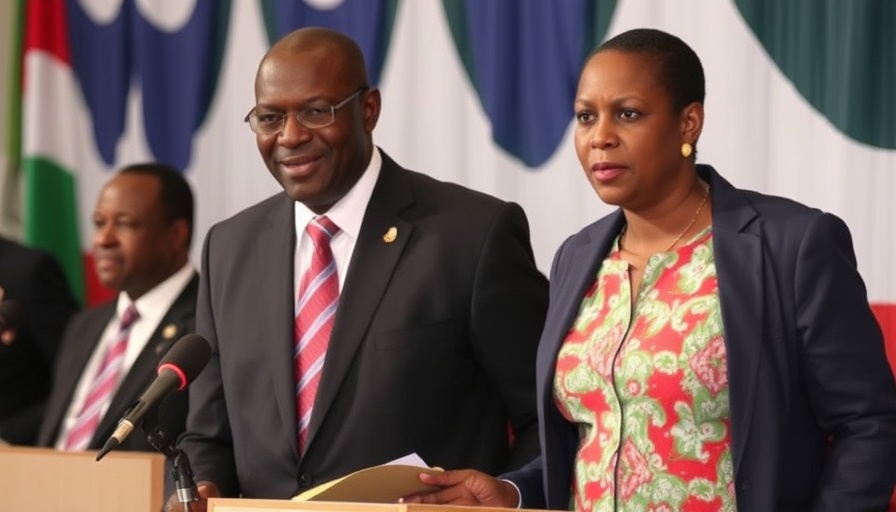
Justice Served: Militia Leaders Sentenced in the Central African Republic
In a landmark decision that echoes through the corridors of justice in Africa and beyond, the International Criminal Court (ICC) has sentenced two militia leaders for their roles in brutal attacks against Muslim communities in the Central African Republic (CAR). This ruling not only serves as a significant step towards accountability but also sheds light on the intricate layers of conflict that plague the region.
The Context of Violence: A Socio-Political Fabric Torn Apart
For years, CAR has been a crucible of violence and unrest, marked by confrontations between predominantly Christian militias and Muslim factions. The ICC's decision underscores a prevailing injustice suffered by minority groups amidst this turmoil, highlighting the urgent need for a comprehensive peace strategy that addresses underlying socio-economic grievances fueling these atrocities. Business leaders and investors watching CAR should recognize that long-term stability will likely hinge on inclusive governance and economic development.
Implications for Global Trade and Governance
The ICC's ruling provides a crucial pivot point for potential international intervention regarding governance structures in Africa. Policymakers and think tanks must weigh the implications of legal rulings not just as judicial milestones but also as strategic markers for international relations. The civil stability of the Central African Republic is intrinsically linked to broader themes in African foreign relations and global trade, as it influences investor confidence and sustainable economic partnerships in the region.
Future Perspectives: Building a Cooperative Framework
Understanding the complexities of Europe-Africa relations and growing ties with China, the current geopolitical landscape offers pathways for CAR's rehabilitation. Collaboration among African nations, facilitated by international organizations such as the African Union, can be pivotal in reconstructing governance frameworks that place human rights at the forefront, thus potentially gaining support from the BRICS nations. This newfound partnership might help prioritize the reconstruction of war-torn economies while adding a layer of economic resilience.
A Call to Action: The Role of Stakeholders in Advocacy
As justice is finally being pursued, stakeholders from various sectors must come together to advocate for constructive policies and support frameworks that encourage peacebuilding in CAR. Investors should leverage their platforms to promote ethical investment standards that align with human rights observance, ensuring that their business ventures contribute positively to social change.
 Add Row
Add Row  Add
Add 


Write A Comment